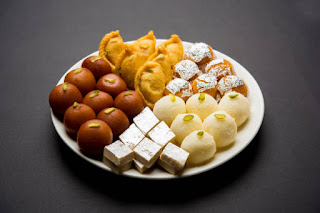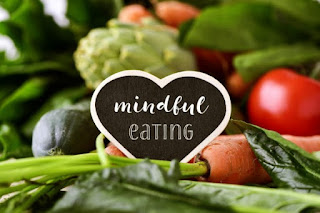Diet and Lifestyle Modification for PCOS
PCOS: A sedentary lifestyle challenges
I and my
school friend, Lily has always been conscious about our skin, but every month
there’s one beautiful gift that our hormones give us aka A-C-N-E, a four-lettered word, but it is significant enough to put you through mental trauma.
Trust me when I say this Lily and I have spent hours applying face masks,
creams, and whatnot. Luckily it worked for me at times and thanks to learning
nutrition I understood the reason for my ACNE quite well and worked on it. But
recently, Lily called me quite tensed and worried.
She said, “Shreya I am diagnosed with PCOS
what shall I do?” As her close friend and a nutritionist, I did help her with
some dietary tips. Later on that night I got another DM (Instagram slangs) from
a client saying she is diagnosed with PCOS. The next day Maa said, her
colleague’s daughter is pre-diabetic and has irregular periods for few
months!! “Is there any way diet can help her?”
That day I realized so many young women are
coming across PCOS and are obviously so scared. With the internet being a quick
source to most of your queries, at times it can leave you completely baffled,
confused, and annoyed with so much information. It can be really daunting to
navigate the right solution for you. So as a nutritionist, I want all the
ladies to know that PCOS is Poly Cystic Ovarian Syndrome and when I say
syndrome it means it is a group of symptoms that is a bit complex.
Polycystic Ovary Syndrome is a disorder of the endocrine system, while PCOD is a condition
developed by the imbalance of hormones. It is more prevalent now due to our
poor lifestyle i.e. sedentary life without any exercise, irregular routine,
stress, and the fast-food culture. PCOS symptoms vary from woman to woman,
therefore it becomes difficult to diagnose. Common
Symptoms of
PCOS:
·
Many
women gain weight within a short span of time and have a hard time losing weight.
·
Some
face experiences with facial hair growth also known as hirsutism.
·
There’s
acne on the face, back, chest.
·
Irregular
menstrual cycle: thinning of hair; darkening of the skin;
·
Skin
tags.
The women are said to have PCOS when any 2 of the above
symptoms are experienced
Causes:
·
Insulin
resistance is commonly experienced by PCOS women. Insulin resistance means the
body tissues are resistant to the effects of insulin. Therefore there’s high
insulin. Now high insulin leads to high testosterone levels and it also
increases fat cells which ultimately increases your weight and weight gain
leads to insulin resistance so this cycle goes on and causes PCOS. Insulin resistance can lead to diabetes.
·
Some
other causes are hormonal imbalance where there is raised levels of
testosterone, luteinizing hormone, and prolactin.
·
Another cause can be genetics, if it runs in your family you are likely to have a risk
of developing PCOS.
Well now if you are wondering how you can treat it?
There’s no definite cure for it as of
now as the primary cause of PCOS is unknown, so the treatment is directed at
the symptoms, from getting it worse. It can be easily treated organically.
Lifestyle changes include a healthy diet, exercising regularly, and maintaining a healthy lifestyle. However, some women do need treatment.
There can be
some dietary changes that can help you control your symptoms. Remember you are
what you eat. Following a diet that meets a person’s nutritional needs,
maintains a healthy weight, and promotes good insulin levels can help women with
PCOS feels better.
Following are some tips that work for my
clients
1. Avoid red meat as it may increase the risk of infertility.
2.
Have
a colorful plate that includes all your greens, yellow, red fruits and
vegetables as they are densely rich in nutrients and antioxidants.
3.
Remove
inflammatory food products like sweeteners, soda’s, processed food, meat, alcohol, refined
carbohydrates like white bread and pasta etc., as it causes havoc in your
system.
4.
Add
anti-inflammatory foods like tulsi, haldi, spices.
5.
Eat
enough protein as it can help to stabilize blood sugar and help in satiety. It
also aids in weight loss by reducing your cravings
6.
Add
fiber-like barley, oatmeal, beans, nuts, and fruits, and complex carbohydrates
like oats, whole grain, peas, brown rice, and beans as it can help you lower
your insulin resistance.
7. Space your meal and stop snacking every now and then as it may increase your insulin levels so, therefore, space your meals, note that if you space your meal with proper nutrient-dense food you would not feel the need to snack every hour.
8.
Including probiotics can help in improving gut health which can help in hormonal
balance. Probiotics like yogurt (low fat), kefir, kimchi, miso, kombucha,
buttermilk. Eat fermented foods like idli, dosa, dhokla, etc. as it also promotes
healthy gut bacteria.
9.
10. Avoid sugar as it is processed and lacks nutrients it affects our hormonal health and can also affect our sleep
cycle, can cause moodiness, hangriness (hungry+angry). You can replace sugar
with jaggery, jaggery powder, coconut sugar, palm sugar but that does not mean
you can have as many sweets as you want. Limitation and portion control is the key
to better health.
Lifestyle
changes:
1.
Adopt
a healthy lifestyle:
n Eat a balanced diet
n Healthy sleep cycle
n Never skip breakfast
n Exercise regularly
2.
Take
regular health checkups.
3.
Set
a goal for your weight loss. Weight loss should be about ½ kg to 1 kg/week for
a period of 6 months, with the latter approach based on the amount of weight
lost.
4.
Avoid
fad/ crash diets as it does not meet your macro and micronutrients
requirements; fad diets do not have long-lasting
5.
Don't
be tempted to skip breakfast or any meal to lose weight. While skipping a meal
will reduce your calorie intake for that hour, it will leave you much hungrier
later on.
Well Lily
says that she has positively accepted PCOS and she realizes that it’s not that
dreadful as she thought it would be. She has started working on her body
internally & tries reinforcing all the positive vibes. She confidently says
that PCOS won’t come into her way of achieving her goals.
Stay
connected with me on my Instagram Page @_fitbite_ and on my Facebook page
“FitBitebyShreyaSalian.
She has been practicing for almost the past 2 years. A strong believer in ‘Let food be thy medicine and medicine be thy food. I also believe in healthy and mindful eating. She can be reached on her Instagram Page @_fitbite_ and on the Facebook page “FitBitebyShreyaSalian.





Very informative...
ReplyDeleteThank you
DeleteVery nice nd informative
ReplyDelete